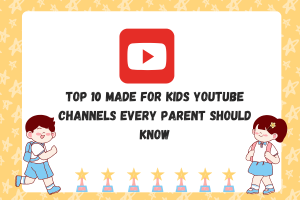Practical Reason Why You Need Move From Website To Mobile App

It’s already several years now that we officially entered the mobile era, in which mobile users already surpassed desktop users in number and penetration. The Mobile web has become the face of the net in general. Now even these mobile web is slowly going to the backseat while mobile apps are taking their place.
Most of the leading business brands now have their mobile apps besides continuing with their earlier mobile web. But for new startups and many other businesses with relatively more unique digital footprints, choosing between the two became necessary. Can you switch to a mobile app from your web presence? What are the stakes for this, and what additional value propositions such a move can bring? We are going to shed light on all these questions here.
Web Apps
Web apps are accessed through mobile browsers and are designed responsively to fit into mobile screens and allow easy access to device functions and interactive mobile features. Let’s have a quick look at the pros and cons of web apps.
Pros
- Broader compatibility: A web app is compatible with different browsers opened across multiple devices and operating systems.
- Broader outreach: Thanks to compatibility and broader browser support across all platforms, web apps enjoy broad outreach and easy access to users across all categories.
- Flexibility: Unlike native apps, web apps do not need to be downloaded and installed. They can be accessed flexibly when needed without committing any device space to them.
- Easy maintenance: Websites, unlike mobile apps, are easy to upgrade and maintain and cost much less maintenance cost.
- Easy availability of resources: Web apps rely on widely popular and extensively used web technologies such as HTML, CSS, and JavaScript that involve a much lower learning curve. This makes it easy for web apps to avail themselves of developer resources.
Cons
- Lack of ease and convenience: In contrast to a mobile app, a web app cannot utilize all the device features efficiently and does not offer easy on-screen access at all times.
- UI/UX design glitches: Web apps are not optimized for all screen smartphone sizes as mobile apps are likely to have UI/UX design glitches. The web app is very unlikely to offer the same fluid and smooth user experience as the mobile apps.
- Not accessible offline: Web apps entirely relying on internet connection doesn’t enforce robust local caching, and so users are doubtful to access a web app offline.
Mobile Apps
Mobile apps are dedicated apps for smartphone devices that can be downloaded from the respective app marketplaces of the OS platform and can be accessed anytime, anywhere by tapping on the app icon on the Home Screen. If you want to build a mobile app from scratch, you need to have a clear idea about the pros and cons.
Let’s have a quick look at the pros and cons of mobile apps.
Pros
- Ease of use: Mobile apps can be accessed easily from Home Screen, allows smooth access to device and OS features, and ensure a smooth user experience.
- Personalized user experience: Mobile apps offer a broader scope of personalization by allowing users to set preferred notification settings, personal accounts, menu options, and quick access to features and content.
- Offline access: Because powerful local device caching mobile apps allow offline access to certain content and features. This ensures a better on-the-go user experience.
Cons
- Platform-specific requirements: Mobile apps, unlike web apps, involve many considerations corresponding to OS compatibility, technology stack, and choice of tools. By using simple web technologies, you cannot build a mobile app.
- Higher development time and cost: Building separate native apps for iOS and Android requires a considerable budget and a much higher development time. Even if you want to develop cross-platform apps for a particular native UI layer of two platforms, you need separate coding and testing.
- Difficulties with maintenance: Just because providing support and care requires rolling out platform-specific updates from time to time, this adds many maintenance tasks and corresponding difficulties for the app projects.
Now that we have seen the pros and cons of both web and mobile apps, we still need to find the key impetuses or reasons businesses are switching to mobile apps from the web. Here are the key reasons.
Enhanced personalization
Personalization of an app refers to the tailored user experience based on user interests, user behavior and usage patterns, location, and user intent. Mobile apps can easily offer a highly personalized user experience to app users.
- Users can choose notification types, frequency, and timing based on their needs or tolerance level.
- Mobile apps allow saving data, user preferences, and media files locally within the device.
- Users can choose menu options for easy access to what they require most.
- Apps based on user behavior, intent, and usage patterns can make recommendations or display content accordingly.
Ease of use
Mobile apps stay ahead of web apps because of maximum convenience or ease of use. Key aspects ensuring ease of use include the following.
- Mobile apps are always accessible from the Home Screen anytime, anywhere.
- By locally caching pages and content, mobile apps can easily allow offline access for on-the-go uses.
- Mobile apps easily enable access to device and OS features for smooth and high-speed app performance.
Branding advantages
Since most users now spend the lion’s share of time on mobile devices, apps work as the face of the brands. Apps ready to be launched anytime, anywhere from the device screen keep the brand in focus.
Even at times, users remain inactive; they can still see the brand icon on their screen and get relevant notifications on the brand offerings from time to time. The app icon coupled up with the notifications continues to keep the users engaged with the brand.
Conclusion
Mobile apps have the edge over web apps for various reasons. But still, the web is not going to lose its significance anytime soon. If you can still retain your web presence besides extending your presence with a new mobile app, that will be the ideal solution.
Author Bio
Vincent Martinot is a keen writer and managing director at EurecaApps – one of the leading app development company helping businesses in developing robust mobile applications. After spending so many years in the IT industry and having years of experience he holds competency in writing helpful, useful, and amazing articles on the different aspects of app development.






